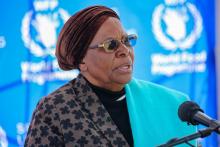Rain brings hope to Omaheke Region residents
Breadcrumb
The residents and livestock in some parts of the Omaheke Region now have hope thanks to the rain.
The headman of Otjomboora Village, Gift Tjirunga, stated that if it weren't for the recent good rainfall received leading up to Christmas, most of their livestock could be dead by now.






